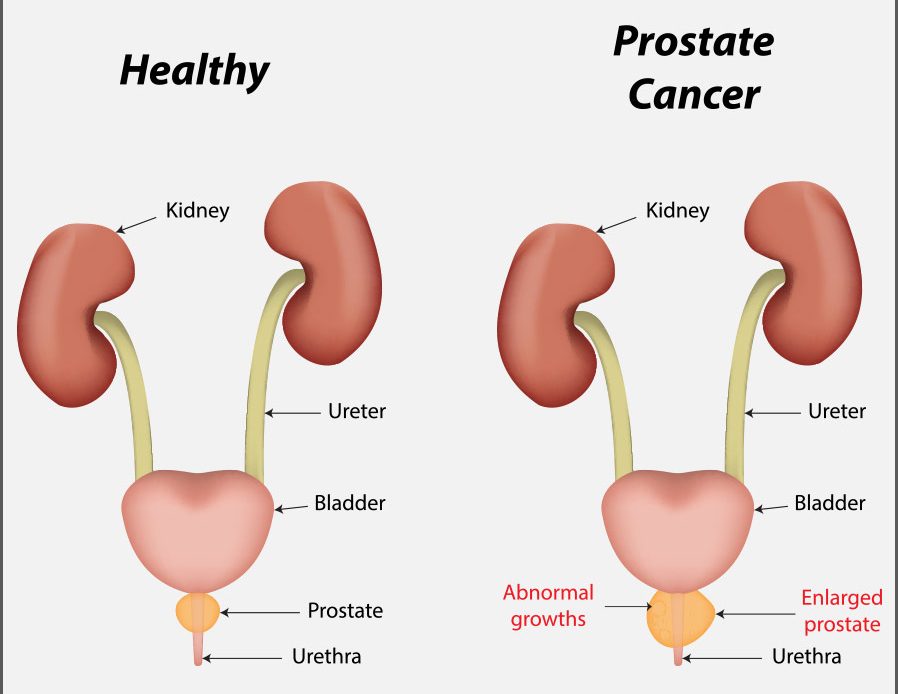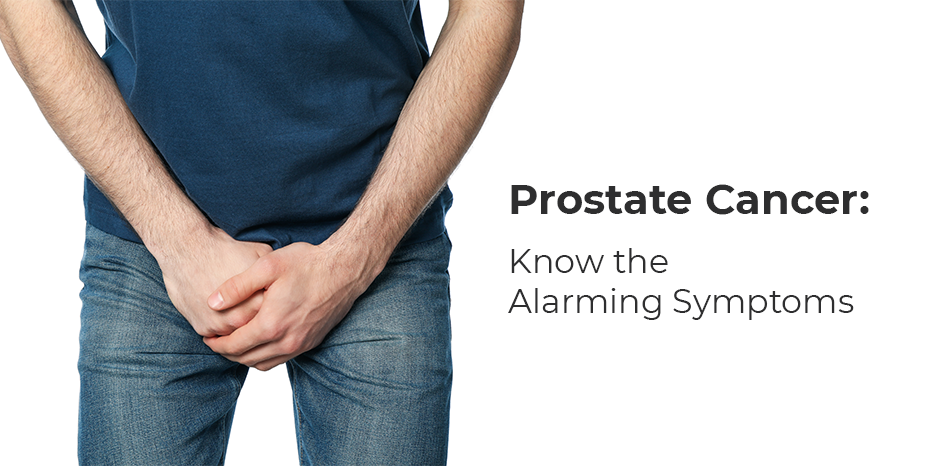Prostate cancer is one of the most common cancers that men face. While prostate cancer rarely produces obvious symptoms in its early stages, there are a few signs that may signal something is wrong in the prostate.
Here are five potential warning signs of prostate cancer:
- A painful or burning sensation during urination or ejaculation
- Frequent urination, particularly at night
- Difficulty stopping or starting urination
- Sudden erectile dysfunction
- Blood in urine or semen
Other possible early signs of prostate cancer include unusually weak urine flow and unexplained pain around the prostate while sitting. If the Postrate cancer has spread beyond the prostate gland, men may experience swelling in the lower body, back, hip or bone pain, abnormal bowel or urinary habits or unexplained weight loss.

It is important to note that the signs of prostate cancer are also shared by many other, less-serious conditions. If you are displaying one or more of these symptoms, it does not necessarily mean that you have prostate cancer. Similarly, a man who is diagnosed with prostate cancer may not have any of these symptoms.
Other noncancerous conditions of the prostate, such as BPH or an enlarged prostate, can cause similar symptoms. Or, the cause of a symptom or sign may be another medical condition that is also not related to cancer. Urinary symptoms also can be caused by an infection of the bladder or other conditions.
Related: Top 10 Ways Of Treating Ezcema Naturally
If cancer has spread outside of the prostate gland, symptoms and signs may include:
- Pain in the back, hips, thighs, shoulders, or other bones
- Swelling or fluid buildup in the legs or feet
- Unexplained weight loss
- Fatigue
- Change in bowel habits
If you are concerned about any changes you experience, please talk with your doctor. Your doctor will ask how long and how often you have been experiencing the symptom(s), in addition to other questions. This is to help figure out the cause of the problem, called a diagnosis.
If postrate Cancer cancer is diagnosed, relieving symptoms remains an important part of cancer care and treatment. This may be called “palliative care” or “supportive care.” It is often started soon after diagnosis and continued throughout treatment. Be sure to talk with your health care team about the symptoms you experience, including any new symptoms or a change in symptoms.











